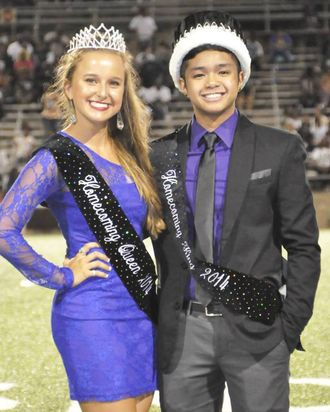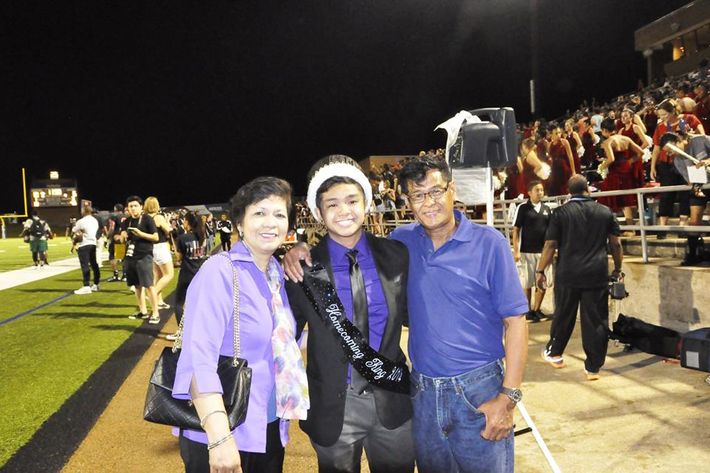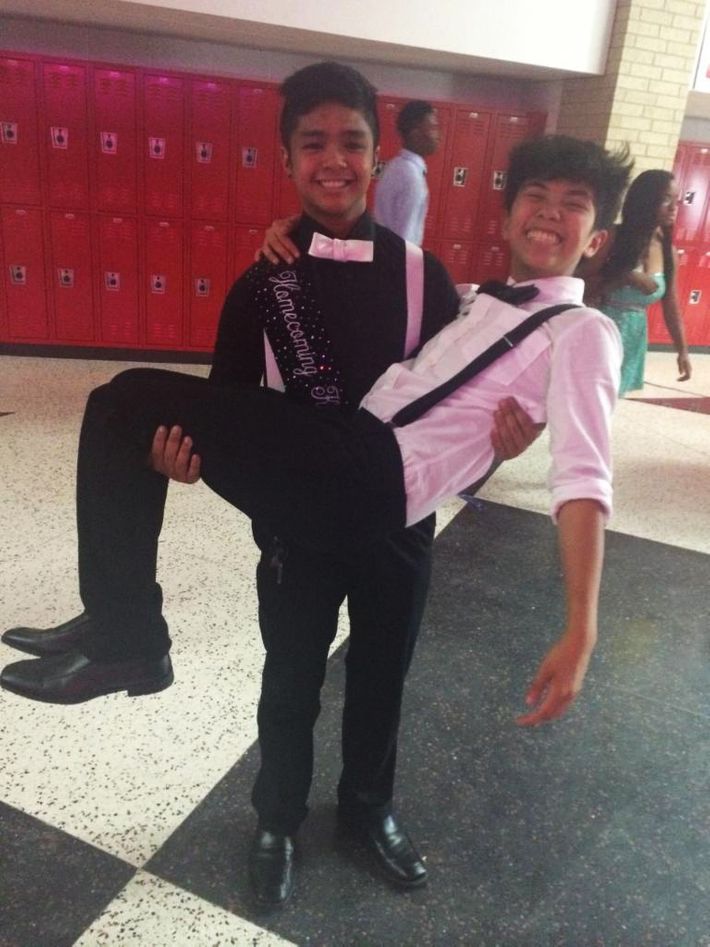
The summer between middle school and high school is a classic opportunity for teenage reinvention — a chance to experiment with eyeliner or lose the last few pounds of preteen baby weight. And for Mel, that summer marked the beginning of his transition from female to male. It was when he first went to the mall with a friend with a plan to get a buzz cut, despite his parents’ explicit instructions not to. Mel had kept his hair short since starting middle school and usually wore boyish clothing; still, the buzz cut was a symbolic divide. With two older brothers, he was regarded as the baby of the family and his parents’ only daughter. You’ll look like a boy! his mother warned him. Which was exactly what Mel hoped for — to more easily pass as male in public and in school around his new classmates. “‘What’s wrong with looking like a boy?’” he remembers asking his mom. “I just didn’t feel it was a problem.”

Not usually one to disobey, he looks back on that period of his life as his “rebellious stage.” But what drove him to cut his hair that day wasn’t an urge to break the rules; it was a growing discomfort with his feminine body and a feeling that he “had to do it now.” The night he cut his hair and came out as transgender to his parents, he posted a selfie of his new look on Facebook. He already felt more confident. Mel started hormone replacement therapy his sophomore year and had his name and gender identifier legally changed when he was a junior. The more his classmates and teachers acknowledged him as a boy, the more comfortable he became.
With the help of some friends, he created a safe zone for other LGBT students at his high school by starting a Gay Straight Alliance chapter. “We were supposed to get a petition ratified to show that there were people on campus where would be interested in joining,” Mel says. “Our goal was 200, and we had like over 500 signatures — so many people were receptive to the idea.”
When Texas students in other cities have tried to create GSA groups in the past, they’ve often faced challenges. After all, this is one of 32 states where you can still be fired for being openly transgender, and one of 29 where you can be fired for being gay or lesbian. It’s a place with abstinence-only sex ed and daily pledges to the state flag, a place where traditions like homecoming are not to be tampered with. Yet the Houston-metropolitan area — which includes Mel’s hometown of Sugar Land — has proved more open to change. Mel’s high school is part of the Houston area’s Fort Bend Independent School District, which is the most diverse district in the state.
“When you have culturally diverse people living next to each other, working together, being educated together, you’re opening doors for other elements of diversity to be exposed,” says Fiona Dawson, an LGBT activist and producer of TransMilitary. She says this kind of diversity leads to more openness when it comes to accepting same-sex relationships, or transgender people. “You see a lot of progressive activists and people who are actually speaking up and making equality happen in Houston.”

Mel was nominated to his school’s homecoming ballot by the members of the GSA, and at first, he says, he didn’t care that much about winning a popularity contest. But he began to see it as an opportunity to become more of an activist — for his GSA friends, his school, and for the transgender community nationwide. “I wanted to show that a guy like me can live a normal life and still be visible in the community and be widely accepted,” Mel says. “I think that is an incredible feat.”
In the wake of Mel’s win, classmates have embraced him. “People are still congratulating me at school,” he says. “People are starting to realize what a big deal it was for this to happen.” The first GSA meeting after homecoming drew more students than ever before, and transgender guys have been messaging him on Facebook and Tumblr, asking him for advice and thanking him for being so vocal.
The night of the homecoming football game, Mel wore purple as an homage to the GSA friends who nominated him. Mostly, though, he wasn’t an activist; he was a high-school kid. Waiting with the nine other members of the court and their parents, he had a feeling he was going to win but tried not to get his hopes up — he didn’t want to be disappointed. He took a picture on his phone right before walking out onto the field. “This is gonna be big,” he remembers thinking. “I want to have this moment saved.”




